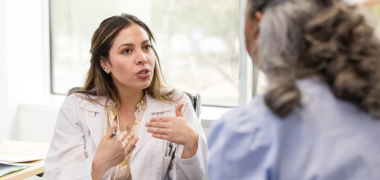
This role has a high level of AI exposure. While some human skills are required, many tasks could be automated or replaced by new technology.
Explore all careersA Clinical Scientist analyses biological samples and develops testing methods to aid disease diagnosis and treatment in healthcare settings.
Get qualified to work as a Clinical Scientist with a course recognised across Australia. Speak to a training provider to learn more.

Browse occupations related to Clinical Scientist



Are you seeking to advance your career in the healthcare industry? Enrolling in Clinical Scientist courses in Brisbane is the perfect step towards achieving your professional aspirations. Currently, you can access the Bachelor of Advanced Science (Honours) (Genetics) offered by the esteemed University of Queensland (UQ). This course is designed for experienced learners with relevant qualifications, providing you with the specialised knowledge required to excel as a Clinical Scientist.
Upon completion of these Clinical Scientist courses in Brisbane, numerous exciting career paths will be available to you. As a qualified professional, you might consider roles such as a Medical Laboratory Technician, Pathology Assistant, or a Phlebotomist. These positions are integral to the healthcare system and contribute to saving lives and improving patient outcomes.
Brisbane, with its vibrant healthcare sector, is an excellent location for pursuing your studies. The presence of recognised training providers ensures that you receive quality education tailored for the local industry's demands. Additionally, you could explore other lucrative roles such as a Medical Laboratory Scientist, Medical Scientist, or even aspire to become a Pathologist. Each of these careers offers unique opportunities for advancement and professional fulfilment.
The education and training path to becoming a Clinical Scientist is fulfilling and engaging. By pursuing Clinical Scientist courses in Brisbane, you are making a commitment to enhancing your capabilities and contributing meaningfully to the medical field. With roles extending to a Medical Researcher or even a Clinical Research Coordinator, the possibilities are endless. Begin your journey today and take the first step towards transforming your career as a Clinical Scientist.